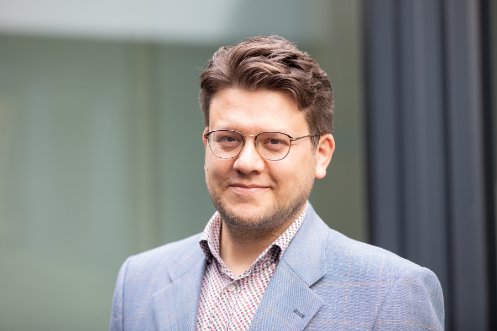The University of Basel is a strong supporter of start-ups and innovation

(Contributed by Christian Schneider, Director Innovation & Entrepreneurship, University of Basel)
In 2019, nine new start-ups were launched at the University of Basel, «more than twice than the year before», says Christian Schneider, Director Innovation & Entrepreneurship at the University of Basel. It’s a pleasant surprise to Schneider: «We’re doing very well, even by international standards». Uni Basel promotes an entrepreneurial mind-set among students and strives to provide a pro-innovation environment. «Transferring and translating scientific discoveries at the university for the general public is one of our core missions», says Schneider. He supports and advises students, PhD candidates and professors before and during the launch of their own start-ups. Promoting innovation at the University of Basel means raising and reinforcing students’ and researchers’ awareness of new and ground-breaking insights and their entrepreneurial potential. This includes nursing an «entrepreneurial spirit», the targeted support of spin-offs through coaching and mentoring, along with expanding into networks and jump at the opportunity to realize projects with partners from the private sector. «Start-ups we support are predominantly active in the life sciences, but at our Innovation Office we’re open for all disciplines», says Schneider.
Of particular importance for the start-up promotion at the university are the guidelines of The National Centres of Competence in Research (NCCR) of the Swiss Federal Government, among them new approaches in fields as diverse as quantum computing or the fight against antibiotic resistance. Schneider elaborates: «Within research fields such as these, we try to make the translational aspect of knowledge transfer a priority from the very start. There are so many companies in Basel active in this field, among them several start-ups – and we strive to bring them even closer in the future».
Networking is key
Founding a company requires fundamentally different knowledge than scientific practice. Collaborating with partners like Swiss Innovation Agency Innosuisse, the University of Basel offers several courses on topics such as entrepreneurship or intellectual property. But the Innovation Office also is a strong promotor of networking and the exchange of ideas inside the start-up community and with companies and expert consultants. Another of its best practices is focused on mentoring and coaching doctoral candidates, young researchers and professors eager to engage in technology transfer or to launch their own spin-off. At the Graduate Consulting Club, a joint initiative of the University of Basel and the ETH Zurich, graduate students and doctoral candidates help start-ups develop and refine their business models.
«In addition to applying specialist knowledge, founding a company also requires entrepreneurial talent – when we spot that talent among rising young entrepreneurs, we try to nurture and grow it», Schneider explains. Measures to do so include the international exchange with India, Korea and the U.S., among others. This allows start-up founders to discover other ways of entrepreneurial thinking in other markets respectively. Simultaneously, such exchanges increase international attention to our region and manage to attract start-ups and talent from abroad. In the near future, these types of cooperation are to be strengthened further in Basel’s three country corner. And not least, the Uni Basel has recently launched its new «Femtrepreneurs Initiative», a program specifically designed to the support women start-up entrepreneurs.
Talent benefits business
That talent at the Uni Basel is a huge benefit for Basel’s economy and business is self-evident to the Director of Innovation & Entrepreneurship: «The point isn’t just that companies have easy access to local talent. It is equally important to lay the groundwork for shared innovation and creating together. Because start-ups clearly import ideas and innovation into the region». A case in point is an ongoing joint project of the Uni Basel and Roche, in which researchers from both institutions learn and benefit from each other’s work and experience.
